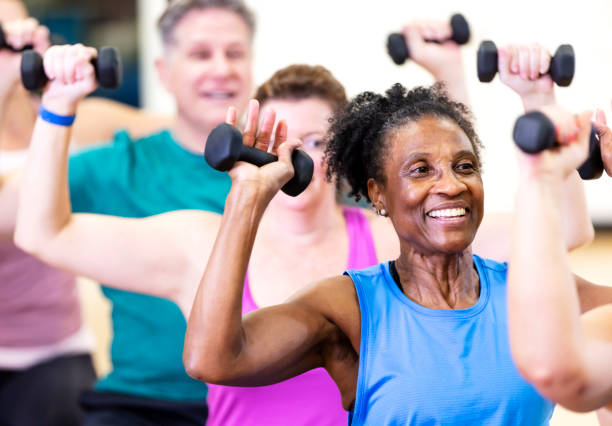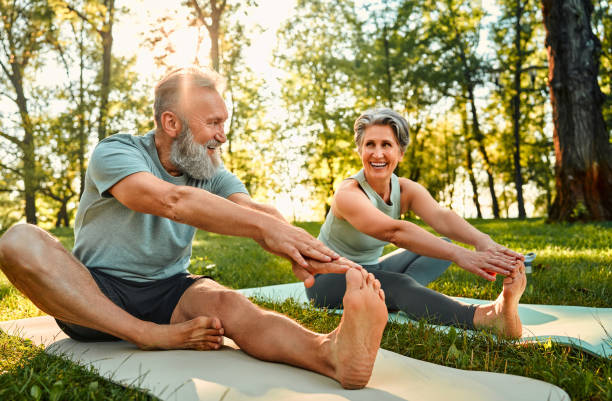As we grow older, maintaining an active lifestyle becomes increasingly important. Exercise is essential for overall health, but seniors require specialized exercise programs to meet their unique needs and physical conditions. These tailored programs help enhance strength, flexibility, and balance while reducing the risk of chronic diseases and injuries.
This blog explores the many benefits of exercise programs for seniors and why they should be an essential part of aging gracefully.
1. Improved Cardiovascular Health
Seniors are more susceptible to cardiovascular conditions, including hypertension and heart disease. Participating in moderate aerobic exercises such as walking, swimming, or cycling helps seniors maintain a healthy heart and circulatory system. These activities lower blood pressure, improve cholesterol levels, and boost cardiovascular fitness. According to the American Heart Association, regular exercise can reduce the risk of heart disease by up to 50%, making it a critical component for long-term health.
2. Enhanced Strength and Muscle Tone
Aging often leads to muscle atrophy, which can affect mobility and increase the risk of falls. Strength training exercises, including light resistance workouts or weightlifting, are incorporated into senior exercise programs to counteract muscle loss. These routines improve muscle tone, increase bone density, and enhance overall mobility, allowing seniors to maintain independence longer. Strength training also alleviates arthritis symptoms by improving joint function and reducing pain.
3. Better Balance and Fall Prevention
Falls are a significant concern for seniors and are a leading cause of injuries among older adults. Specialized exercise programs often emphasize balance exercises, such as tai chi or yoga, which improve coordination and stability. These activities train the muscles and enhance the mind-body connection, helping seniors move more confidently and reducing the fear of falling. Studies have shown that consistent participation in balance training exercises can reduce the risk of falls by up to 30%.
4. Boosted Mental Health and Cognitive Function
Exercise is not only beneficial for the body but also for the mind. Seniors who engage in regular physical activity experience lower levels of anxiety, stress, and depression. Aerobic exercises increase endorphins, the body’s natural “feel-good” chemicals, which improve mood and emotional well-being. In addition, studies suggest that physical activity can slow cognitive decline and improve brain function. Activities like dance classes or group exercises stimulate memory and coordination, helping to delay the onset of dementia and Alzheimer’s disease.
5. Management of Chronic Conditions

Seniors often face chronic conditions such as diabetes, arthritis, and osteoporosis. Regular exercise plays a crucial role in managing these conditions and improving quality of life. For example, low-impact aerobic exercises help control blood sugar levels in individuals with diabetes, while resistance training strengthens bones and mitigates osteoporosis risks. Exercise also reduces inflammation and stiffness in people who have arthritis, providing them with better mobility and less pain.
6. Social Engagement and Emotional Well-being
Many senior exercise programs are designed with a social component, promoting group classes or community activities. These settings provide seniors with opportunities to meet others, build friendships, and maintain social connections—an important factor in emotional health. Isolation and loneliness are common challenges for older adults, and group exercises foster a sense of belonging, improving mental health. Additionally, accountability from peers and instructors motivates participants to stay committed to their fitness routines.
7. Increased Flexibility and Joint Health
As we age, joints tend to lose flexibility, resulting in stiffness and discomfort. Often included in yoga and Pilates programs, stretching exercises help seniors maintain joint flexibility and reduce muscle tension. Improved flexibility not only enhances mobility but also lowers the risk of injuries by ensuring that muscles and joints function smoothly. Stretching exercises are particularly beneficial for seniors with arthritis, as they reduce stiffness and promote a greater range of motion.
8. Better Sleep Quality
Sleep disturbances are common among seniors, leading to fatigue, irritability, and cognitive issues. Engaging in physical activity during the day promotes better sleep quality by regulating circadian rhythms and reducing stress levels. Studies indicate that seniors who exercise regularly fall asleep faster and experience more restful sleep. Activities like morning walks, yoga, or light aerobics are particularly effective for promoting healthy sleep patterns.
9. Long-term Independence and Quality of Life
Ultimately, senior-specific exercise programs aim to enhance independence and improve quality of life. Regular exercise enables older adults to perform daily activities easily, like climbing stairs, grocery shopping, or gardening. Maintaining physical fitness also reduces the likelihood of hospitalization due to falls or chronic illnesses, allowing seniors to age in place and enjoy their golden years.
Conclusion
Exercise programs tailored for seniors offer numerous physical, mental, and emotional benefits. From improving cardiovascular health and muscle strength to preventing falls and enhancing social connections, these programs address the specific needs of older adults. By participating in regular physical activity, seniors can manage chronic conditions, boost cognitive function, and enjoy a better quality of life. Whether it’s through group classes, walking programs, or yoga sessions, the key is consistency. With the right exercise routine, seniors can lead healthier, more independent lives and embrace aging with confidence.
By prioritizing physical activity, seniors can not only improve their overall well-being but also rediscover the joy of movement, proving that it’s never too late to take charge of their health.

